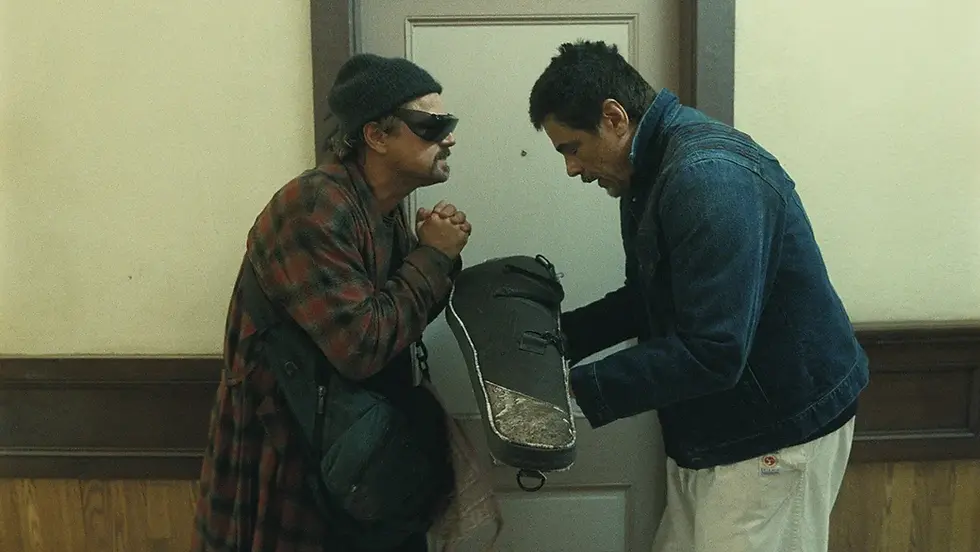Through The Looking Glass
- Stephen Gerringer

- Sep 29, 2019
- 4 min read
Updated: Jun 27, 2024

I myself have been traveling around quite a bit, these years, from one college campus to another, and everywhere the first question asked me is, "Under what sign were you born?" The mysteries of the Tarot pack, the I Ching, and Transcendental Meditation . . . Well, all this is just the beginning, the first signaling of a dawning realization of the immanence of the occult, and of this as something important for our living. (Joseph Campbell, The Mythic Dimension, “The Occult in Myth & Literature," 260-261)
"The occult": an emotionally charged term that evokes sinister associations, everything from fraudulent and greedy fortune tellers to satanic rituals, images reinforced in pulpits and on movie screens across the country . . . but is this the reality? Is the practice of occult arts––particularly popular forms of divination, including astrology, Tarot, and the I Ching––simply ignorant superstition? Do such arts represent an exercise in futility, an abdication of responsibility for one's own life?
Can we make use of these forms of divination without feeling like we've been cast in a really bad, low-budget horror flick?
Forms of divination have been practiced in all cultures. Whether a Roman auger examining the liver and entrails of a sacrificial ox, a Chaldean priest charting the stars, an Iroquois shaman taking note of a sudden shift in the flight of a bird, or Delphi's Pythia inhaling the fumes emanating from a cleft in the earth, each seeks information from elsewhere, a realm beyond the confines of one’s limited, waking consciousness. Oracles differ in many ways from the prophetic pronouncements of biblical traditions. They are often ambiguous––no clear direction in the "this is the way, walk ye therefore in it" sense of scripture. Nor does the outcome hinge on obedience or disobedience to the decrees of a specific deity.
I'll never forget the experience of going to Delphi in Greece … That is where the oracle, the prophetess, received inspiration in the fumes, the smoke coming up from the abyss, and she prophesied and gave statements of destiny. (Campbell, The Hero's Journey, 12)
Not jeremiads delivered on behalf of a wrathful god, but statements of destiny. The future so conceived is not then determined by some external agency, but arises out of one's own inner nature, a reflection of the larger patterns present in nature itself. The word "occult" means "hidden" (sharing the same root as "occluded"); from this perspective oracles open a window on the "hidden unity beyond or informing the world of multiplicity and its phenomena" (The Mythic Dimension, 262). They require not blind obedience, but open-minded reflection.
This "hidden unity" is depicted differently depending on what form the oracle takes:
The seeker is supposed to look for some sort of correspondence between all this and his own case, the method of thought throughout being that of a broadly flung association of ideas. One has to feel, not think one's way into these secrets, letting each symbol grow into a cosmos of associated themes . . . (Campbell, The Masks of God, Vol. II: Oriental Mythology, 413)
Two people look at the same cloud but see different images, depending on how their individual imaginations engage that cloud; you see a unicorn, I see a castle. Neither is more right than the other––underneath it's still a cloud, after all. Similarly, in a Rorschach inkblot you may see a butterfly where I see a bat––again, no right or wrong answer, but the image one perceives offers clues as to how each engages reality.
This especially holds for oracles.
Most forms of divination practiced today––whether consulting the stars, the Tarot, or the I Ching––offer a series of mythic images in combinations that mirror the present moment and correspond to those patterns in the human psyche that Jung terms "archetypes of the collective unconscious." These motifs are symbolic of experiences common to all humanity (birth, love, death, etc.).
At their best, methods of divination provide a portal into the mythic imagination. In the words of Novalis, "The seat of the soul is there, where the outer and the inner worlds meet." As with any mythological system, we are presented with metaphor––but remember, metaphor does not mean false: myth as metaphor is a set of living symbols that pitch the individual past the confines of the personal ego into an experience of the transcendent.
Regardless of whether or not one is drawn to one or another of the many colorful forms of divination still practiced today, Joseph Campbell suggests the dramatic increase of interest in the oracular arts points to a growing recognition of the relationship between one's own inner hidden "occult" nature, and the world of nature outside oneself:
We are now observing throughout our cultural world a resurgence of the cult of the immanence of the occult, within ourselves and within nature. The old Bronze Age realization of a micro-macrocosmic unity is returning, and everywhere all the old arts that were banished are coming back. (The Mythic Dimension, "The Occult in Myth & Literature" 260)
Joseph Campbell isn't proselytizing for "the occult," nor is he recommending we surrender reason and base all decision-making on tea leaves and the Tarot––but he does note that these means of divination can be valuable tools, like meditation, like dream work, like myth itself. Apart from the broad sweep of mythos, Campbell suggests this is "something important for our living" on a personal level. I suspect the real value of the experience lies in the opportunity afforded to re-imagine and mythologize one's own life.
We live in a storied universe. Whether we know it or not, we are, indeed, the figures of myth.

%20BB.png)


